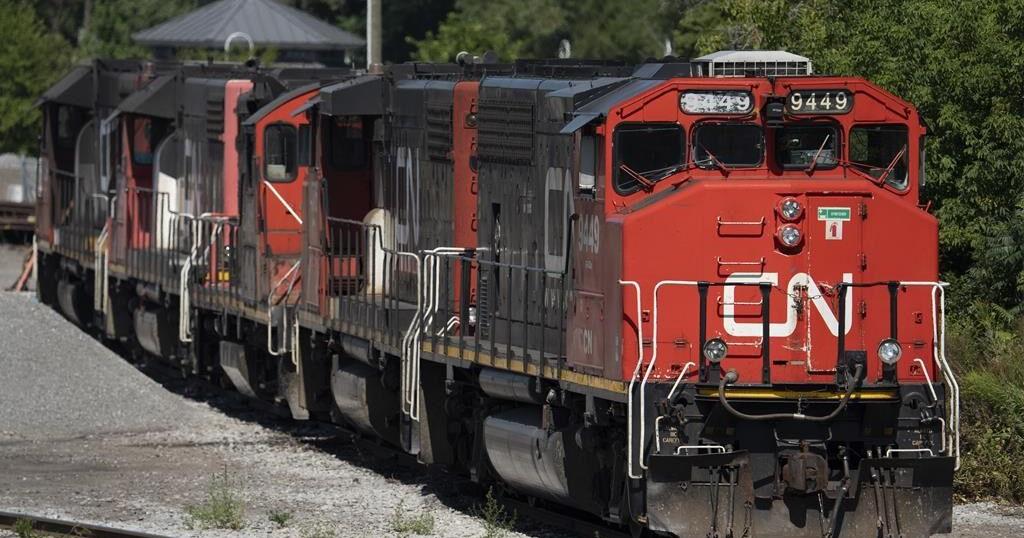LONGUEUIL, Que. – People in a part of Longueuil, Que., were being asked to stay indoors with their doors and windows closed on Thursday morning after a train derailed, spilling an unknown quantity of hydrogen peroxide.
Police from the city just east of Montreal said it didn’t appear anyone was hurt, although a CN rail official told a news conference that three employees had been taken to hospital as a precautionary measure.
The derailment happened at around 9 a.m. in the LeMoyne area, near the intersection of St-Louis and St-Georges streets. Mathieu Gaudreault, a spokesman for CN rail, said about eight cars derailed at the Southwark rail facility, including four that toppled over.
“As of this morning, the information we have is it’s hydrogen peroxide that was in the rail car and created the fumes we saw,” he said, adding that there was no risk of fire.
François Boucher, a spokesman for the Longueuil police department, said police were asking people in the area, including students at nearby schools, to stay indoors while experts ensure the air is safe to breathe.
“It is as a preventive measure that we encourage people to really avoid exposing themselves unnecessarily,” he told reporters near the scene.
Police and fire officials were on site, as well as CN railworkers, and a large security perimeter was erected.
Officers were asking people to avoid the sector, and the normally busy Highway 116 was closed in the area. The confinement notice includes everyone within 800 metres of the derailment, officials said, who added that it would be lifted once a team with expertise in dangerous materials has given the green light.
In addition to closing doors and windows, people in the area covered by the notice are asked to close heating, ventilation and air exchange systems, and to stay as far from windows as possible.
Gaudreault said it wasn’t yet clear what caused the derailment. The possibilities include a problem with the track, a problem with a manoeuvre, or a mechanical issue, he said.
This report by The Canadian Press was first published Nov. 14, 2024.
